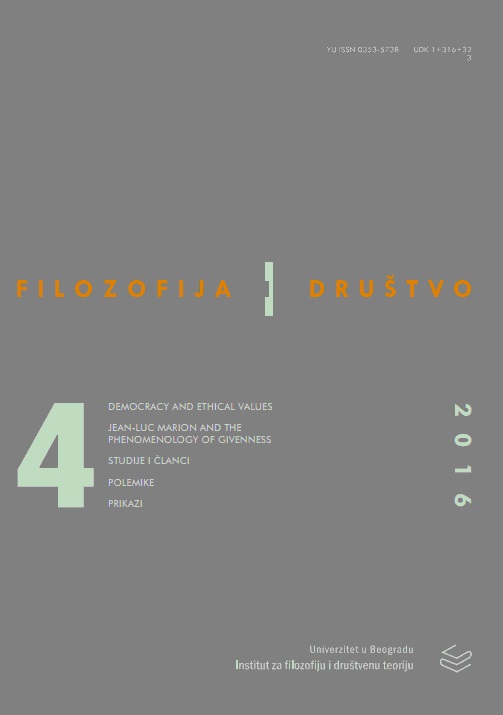Nature, Civility and Eschatology: Thomas Hobbes’s Progress in Three Acts
Nature, Civility and Eschatology: Thomas Hobbes’s Progress in Three Acts
Author(s): Marko SimendićSubject(s): Political Philosophy
Published by: Institut za filozofiju i društvenu teoriju
Keywords: Hobbes; progress; determinism; sovereign; world government; antichrist
Summary/Abstract: This paper argues that Thomas Hobbes’s theory contains an account of progressive defragmentation and unification of power, accompanied by the progression in human reasoning capacities. If the consequence of human nature is abandonment of natural condition and subjection to a sovereign, then similar principles should apply to the sovereigns themselves, since Hobbes sees them as continuing to exist in the state of nature. In turn, the relations between sovereigns must also lead to defragmentation of political authority, either by conquest or through peaceful submission. Total defragmentation of power might also have eschatological consequences, as the unified power of one human being over the whole world would remove “external violence” as a cause of “the dissolution of a commonwealth” while the perfection of reason would progressively remove the “internal” causes. This is a hypothetical situation that could relate Hobbes’s description of the Kingdom of god from Leviathan to his wider political theory by marking the single sovereign representative of now immortal all-encompassing Leviathan as the Antichrist and thus announcing the second coming of Christ.
Journal: Filozofija i društvo
- Issue Year: 27/2016
- Issue No: 4
- Page Range: 884-900
- Page Count: 17
- Language: English

